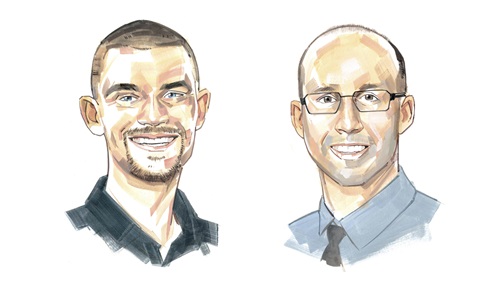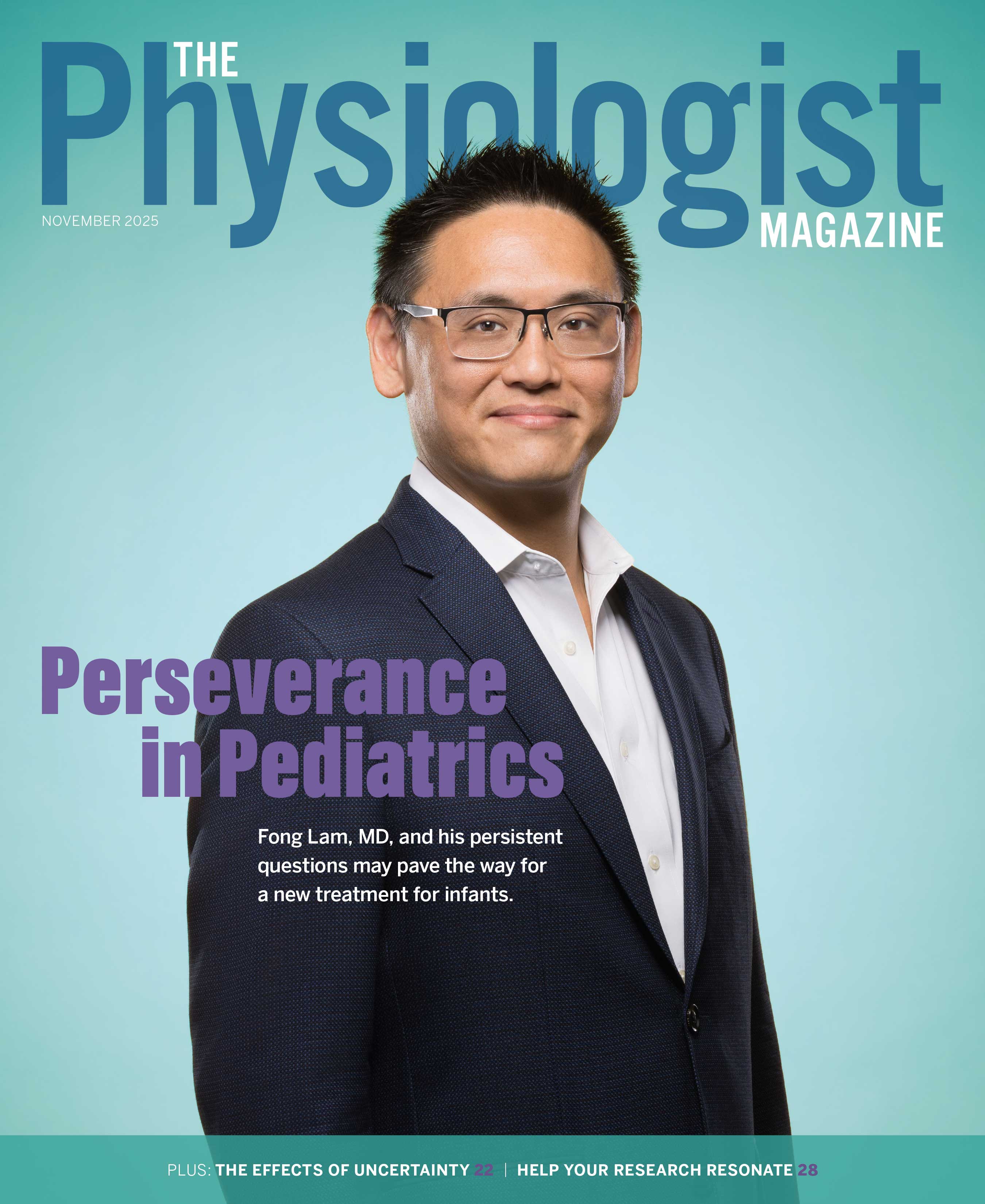Mastering the Art of Science Communication
How to talk science today, including embracing AI.

In each column, we ask a student or early-career member to pose their career questions to an established investigator and mentor. Here, Zachary T. Martin, PhD, a postdoctoral fellow at Rollins School of Public Health at Emory University, asks Paul J. Marvar, PhD, a cross-disciplinary integrative physiologist, about science communication and life as a principal investigator (PI). Marvar is associate professor in the Department of Pharmacology and Physiology and Department of Psychiatry and Behavioral Health at George Washington University.
Q: Science communication is an important part of what we do. What tips and advice would you offer for giving the best presentations?
A: My advice for giving effective science presentations aligns
with general public speaking and communication principles, with some tips based on my academic experience. First, know your audience and tailor your message accordingly. Preparation is key—research your topic presentation thoroughly, seek input
from colleagues to refine your presentation format, and understand your speaking style to ensure it aligns with the allotted time and the material you plan to cover.
Regularly seek input from your mentors and someone outside your research area, such as a friend or partner, and learn by observing more experienced scientists present their research. Seek out and take every opportunity to communicate your research to colleagues, friends or a non-scientist and in different types of settings. These informal exchanges can provide valuable practice for honing your science communication skills in different ways to best describe the broader impact of your research on society.
Additionally, take advantage of formal workshops offered by your institution or conferences, as they are invaluable for developing these skills. Finally, social media provides a valuable platform to effectively communicate and promote your research, offering opportunities to share your findings and reflect on them with a broader audience.
Q: Artificial intelligence (AI) is affecting many aspects of life, including biomedical research and higher education. What are you doing to adapt?
A: We are navigating uncharted territory with the rise of AI, and the landscape
seems to be evolving daily.
I make it a priority to stay current with the latest developments, particularly in academic journals, grant funding policies and the applications of AI in research and education. I’m especially optimistic about
how AI will transform the health care industry, with its potential to significantly enhance decision-making, diagnostic and treatment algorithms. For instance, recent advancements have shown that AI can help identify toddlers who may have autism, achieving
an accuracy of 80% in screening children under 2 years old (JAMA Network Open, August 2024). This is an exciting area, and I look forward to contributing to be a part of the evolution of AI in science, my professional roles and everyday life.
Q: Becoming a PI of your own lab often results in taking on many roles that you weren’t overtly trained for. What have you done to bolster this aspect of your work?
A: Fortunately, there are numerous resources available today
to help develop these skills. When I transitioned from postdoctoral fellow to faculty, I attended workshops focused on these topics and found textbooks such as “Academic Scientists at Work: Navigating the Biomedical Research Career” particularly
helpful.
Also, actively seek guidance from your professional network and mentors. Lab management styles vary greatly, so gather insights from multiple senior researchers to find what resonates with you. Networking and mentorship are key to not only navigating lab management but also shaping your leadership style.
Think of your role as running a small business: You’re responsible for securing funding, purchasing supplies and managing a team. Approaching your lab in this entrepreneurial way can help you develop a clear and sustainable lab management strategy.
Got a career question you'd like to submit? Email it to tphysmag@physiology.org. We may use it in an upcoming Mentoring Q&A.
This article was originally published in the November 2024 issue of The Physiologist Magazine. Copyright © 2024 by the American Physiological Society.
The Physiologist Magazine
Read the Latest Issue
Don’t miss out on the latest topics in science and research.
Contact Us
For questions, comments or to share your story ideas, email us or call 301.634.7314.


